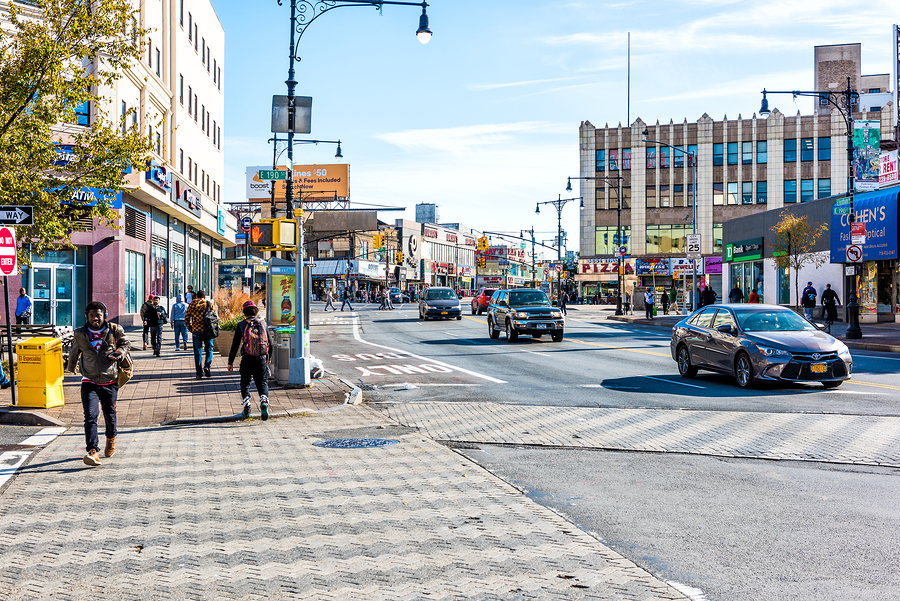The Average Investor's Guide to Opportunity Zones
This article is part of a 4-part series on Capital Region Opportunity Zones. For more info, check out Albany NY Opportunity Zones, Schenectady NY Opportunity Zones, and Troy NY Opportunity Zones.
If you're involved in real estate, chances are you’ve heard the buzz about the Opportunity Zones program that was kicked off late in 2018, and for good reason. This program was introduced as part of the Trump Tax Cuts and Jobs Act back in 2017, but has only begun to pickup steam since October of 2018 when the IRS released its first set of interim guidelines that outline how the program can be implemented, and is now generating massive interest from all asset classes, not just real estate. This article will hopefully demystify:
- What are Opportunity Zones and how does the program work?
- How can I invest in Opportunity Zones?
- How can the average investor benefit from Opportunity Zones?
What are Opportunity Zones?
Opportunity Zones are economically distressed neighborhoods that provide tax breaks to those making new, eligible investments in the area. The Opportunity Zones have been specifically selected by state governments in all 50 states, and you can check out this detailed map to see exactly where.
What is the purpose of Opportunity Zones?
Almost everyone has heard the age-old real estate advice to "buy the worst property in the best neighborhood", which affords a buyer the ability to rehab, add value, and force appreciation to a run-down property. These properties are in constant demand by real estate investors, and this is a tried-and-true real estate strategy that works, and is a relatively safe bet.
However, the other side to this coin is that typical real estate investors almost universally avoid the worst neighborhoods because no matter how well they may rehab and operate a property, if the neighboring properties are still crack-houses and meth labs, their property will struggle to find tenants and never appreciate. This is where the Opportunity Zone program comes in.
The spirit of the program is to encourage investors that are sitting on large, unrealized capital gains (like from stocks or real estate) to reinvest those proceeds into distressed communities that may never see outside investment otherwise. Since very few investors have the capital (and the guts) to single-handedly attempt to turn around an entire community, the Opportunity Zones program is intended to incentivize groups of large investors to pool their funds and focus investment into these distressed areas that would typically be avoided.
How does the program work?
This is where it gets tricky. The program is somewhat similar to a 1031 exchange in that an investor is able to take gains from the sale of an asset that would normally be subject to capital gains tax, and defer or reduce their tax liability by reinvesting those proceeds into a Qualified Opportunity Fund (QOF). A QOF is an investment vehicle organized as a corporation or partnership for the sole purpose of investing the funds into Opportunity Zone properties.
What's great about this is that unlike a 1031 exchange, an investor can defer or reduce taxes not just on real estate gains, but on stock gains as well. The timing for the program is great because at the moment:
- Hordes of stock investors are sitting on huge unrealized gains in their portfolios following one of the longest bull markets in history;
- Many believe the stock market has peaked, and are antsy to take some of their profits off the table;
- Investors are struggling to find new stock investments they believe are good values;
- But they don't want to pull their cash out of the market and trigger capital gains taxes on those profits.
Reinvesting those funds into an Opportunity Zone potentially solves all of those problems for an investor, and experts are expecting there to be a flood of billions of capital into these areas as a result.
How can I invest in an Opportunity Zone?
You have 2 options:
Start a Qualified Opportunity Fund.
This isn't as daunting as it sounds, but definitely requires some work, money, and legal and accounting expertise. Definitely not the best strategy for beginners, but if you're an investor who is comfortable syndicating deals with others, raising private capital, or putting together partnerships and joint ventures, this is an option. In a nutshell, you'd likely form a fund in the form of a Corporation, then raise money from your rich friends and acquaintances that have asset gains to deploy, and find deals in an Opportunity Zone where you can deploy all that capital.Invest your own gains passively in someone else's QOF.
This is much easier than #1, but with less upside, and it might be difficult to find a QOF willing to take sums less than 6 figures.
In either case, investors only have 180 days to roll funds over into a QOF and a limited time thereafter for those funds to be invested into a project, so the clock is ticking.
How can I profit from Opportunity Zones if I don't have capital gains to invest?
Welcome to the club! If you're like me and 99.99% of the rest of the investing world, you're probably not sitting on gazillions in capital gains that is burning a hole in your pocket, ready to deploy into a QOF. Fortunately, there are still plenty of ways for us yacht-less types to make a buck and benefit from this program without necessarily investing directly into a QOF. Here are some ideas:
Buy in the path of progress.
If you're on the market for your next real estate deal, even if it's just a single-family, a duplex, or a small multi-family, consider buying in an Opportunity Zone. It's true that you won't get any special tax breaks like the QOF investors, but you could be getting in early on the next Brooklyn or Portland. However, remember that just because an area is deemed an Opportunity Zone, that does not necessarily mean it will be attract the big investors. Be diligent and do your research, and you might be able to ride the incoming wave.Find deals for others.
The biggest barrier preventing investors from buying up more real estate is the challenge of finding the deals in the first place. If you're a real estate agent, broker, or wholesaler, start paying closer attention to Opportunity Zones near you. These are likely the areas you had previously written off as being undesirable neighborhoods, but now have a reason to attract serious investor interest.Start a business.
As apartment communities begin popping up in these neighborhoods, so too will the demand for haircuts, craft beer, and avocado toast. If you're considering starting or expanding your business, consider an Opportunity Zone for your next endeavor. Not only will you be contributing to turning the neighborhood around, but you may also be able to find some pretty good deals on leasing a newly remodeled or built property from the local QOF.Start flipping.
All eyes are on Opportunity Zones right now, which is already starting to spur speculative development and drive up prices. Even if you're not flipping massive apartment buildings for QOF's, you may be able to take advantage of the increased attention and gentrification of the neighborhood by rehabbing smaller properties and creating "turn-key" investments for incoming investors, or to be packaged with other assets to be bought by QOF's.


